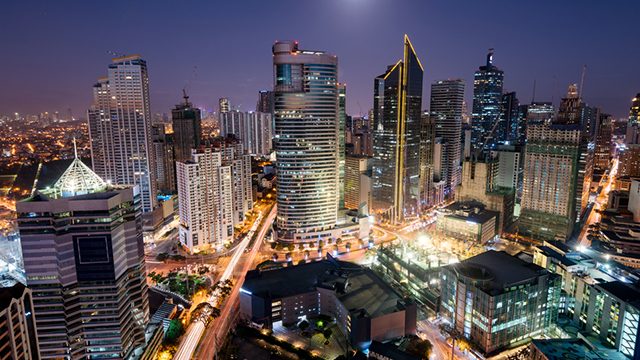SUMMARY
This is AI generated summarization, which may have errors. For context, always refer to the full article.

MANILA, Philippines – Despite the political noise, First Metro Investment Corporation (FMIC) remains bullish on the Philippine economy.
The investment firm sees the country’s gross domestic product (GDP) expanding by 7% to 7.5% this year.
FMIC president Rabboni Francis Arjonillo said the Philippines has solid macroeconomic fundamentals.
“Robust domestic demand continues to fuel the economy, underpinned by double-digit investments growth, strong infrastructure spending, more jobs creation, resurgence in manufacturing, and rising tourist arrivals,” he said.
But First Metro expects inflation to settle between 4.2% and 4.5% during the second half of the year. The range is outside the Bangko Sentral ng Pilipinas (BSP) target range of 2% to 4%, but below June’s 5-year high of 5.2%.
FMIC said inflation would taper off later this year due to the “slowdown in crude oil prices and likely decline in the cost of rice with the arrival of imports in June.”
The investment firm also forecast remittances from overseas Filipino workers (OFWs) to sustain a 2% to 4% growth rate in 2018. Cash remittances rebounded in April by 12.7% year-on-year from a 9.8% drop in March.
Despite poor exports in the first 5 months of 2018 which resulted in a wider trade deficit, FMIC said the recovery in the United States, European Union, China, and Japan would boost Philippine exports in the coming months.
FMIC sees exports rising, but still moving at a slower pace of 6% to 10%.
On the other hand, imports are expected to sustain a double-digit growth of 10% to 14%, driven by robust capital spending and higher oil imports.
Arjonillo said the Philippine peso will remain weak and will likely trade at an average of P53.90 against the US dollar.
“The peso depreciation is actually not bad for an economy like ours. In fact, its impact in both the short and medium terms is positive. A weak peso would discourage imports and produce more exports, thus, reducing the trade deficits over the medium term,” he said.
FMIC sees the BSP implementing another policy rate hike by as much as 50 basis points on the back of rising inflation.
Meanwhile, the investment firm projected the Philippine Stock Exchange index (PSEi) to finish strong this year. It is estimated to rally to 7,900 to 8,200 with earnings per share (EPS) growth of 11.5% and price to earnings (PE) ratio of 18-19x. – Rappler.com
Add a comment
How does this make you feel?
There are no comments yet. Add your comment to start the conversation.